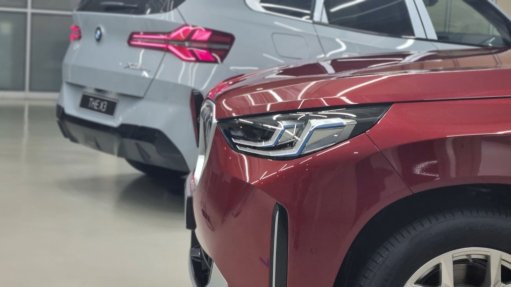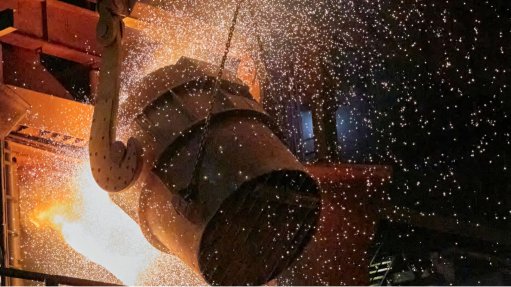East or West, which is best?
It is March 8. No, not as you read, but as I write this piece. And this brings me to the question: Do you believe in chance or luck? Do you believe in coincidence? Maybe Laura Pedersen’s assertion that “coincidence is God’s way of being anonymous” is quite accurate.
I ask as I pick up my copy of Gavin Menzies’ international best seller, The Lost Empire of Atlantis, and contemplate rereading it. But, for some reason, I decided to turn to the last page of the book. I cannot explain why. If I had to offer a defence, I would argue that this is attributable to a practice of an aunt of mine I lodged with when I was in my first year at university. For a reason I cannot explain, she read magazines from the back cover to the front cover. In hindsight, the index of the magazine might have been the ultimate spoiler for her.
On the last page of Menzies’ book appears the question: Have you read? Yes, I admit, you do lose something when you start at the back of a book. Context, for example. But not being deterred, I continued reading the following headline: ‘1421: The year China discovered the world’. This 650-page book is an intimidating read. Still, you might question the relevance.
“On March 8, 1421, the largest fleet the world had ever seen sailed from China. The armada of ships . . . nearly 500 ft (152.4 m) long had a single mission – to travel all the way to the end of the earth to collect tributes from the barbarians beyond the seas.” Their journey eventually lasted nearly two years, with the armada returning in October 1423, to a changed land – a land in political and economic chaos. The success of the armada’s mission, under any other circumstances, would have firmly embedded China as the centre of the world.
If Menzies is to be believed, 1421 was also the year that China discovered America. Just remember that, for a moment. Menzies also wrote: “1434: The year a magnificent Chinese fleet sailed to Italy and ignited the Renaissance.” The armada was not all about discovering the world’s riches or its people; on board were cartographers, carefully mapping their newly discovered world.
Turning to Christopher Columbus, can you recall when he was said to have ‘discovered’ America? It was October 12, 1492 – decades after the Chinese had been to that part of the world, according to Menzies. But, interestingly, on October 10, Columbus’s crew nearly staged a mutiny. This is a matter of Western record, and Columbus promised his crew that, if land was not sighted in two days, they would return home. Only Menzies contends that, in essence, Columbus discovered America using a map. You might bring this into question, as no man ever uses a map or asks for directions, but perhaps Columbus was an exception, or the last man ever to use one.
The intention of this column is not to try to convince you that Menzies is right, but rather to open your mind to the fact that what you might believe to be true in international trade might well not be so.
You might recall the movie The Big Short, which opens with this quote from Mark Twain: “It ain’t what you don’t know that gets you into trouble.” The quote is supposed to give credence to what was said subsequently, but, quite deliberately, the quote is not a Twain quote; instead, it is a Leo Tolstoy quote. Somehow, the quote is not as profound as when you believe Twain to have uttered these words.
The point I am making is simply this: What if all that you believe to have been the truth with respect to the devolution of international trade is but a figment of someone’s imagination? What if all the Western world knows or believes it knows originates in the East? Think about it.
Article Enquiry
Email Article
Save Article
Feedback
To advertise email advertising@creamermedia.co.za or click here
Press Office
Announcements
What's On
Subscribe to improve your user experience...
Option 1 (equivalent of R125 a month):
Receive a weekly copy of Creamer Media's Engineering News & Mining Weekly magazine
(print copy for those in South Africa and e-magazine for those outside of South Africa)
Receive daily email newsletters
Access to full search results
Access archive of magazine back copies
Access to Projects in Progress
Access to ONE Research Report of your choice in PDF format
Option 2 (equivalent of R375 a month):
All benefits from Option 1
PLUS
Access to Creamer Media's Research Channel Africa for ALL Research Reports, in PDF format, on various industrial and mining sectors
including Electricity; Water; Energy Transition; Hydrogen; Roads, Rail and Ports; Coal; Gold; Platinum; Battery Metals; etc.
Already a subscriber?
Forgotten your password?
Receive weekly copy of Creamer Media's Engineering News & Mining Weekly magazine (print copy for those in South Africa and e-magazine for those outside of South Africa)
➕
Recieve daily email newsletters
➕
Access to full search results
➕
Access archive of magazine back copies
➕
Access to Projects in Progress
➕
Access to ONE Research Report of your choice in PDF format
RESEARCH CHANNEL AFRICA
R4500 (equivalent of R375 a month)
SUBSCRIBEAll benefits from Option 1
➕
Access to Creamer Media's Research Channel Africa for ALL Research Reports on various industrial and mining sectors, in PDF format, including on:
Electricity
➕
Water
➕
Energy Transition
➕
Hydrogen
➕
Roads, Rail and Ports
➕
Coal
➕
Gold
➕
Platinum
➕
Battery Metals
➕
etc.
Receive all benefits from Option 1 or Option 2 delivered to numerous people at your company
➕
Multiple User names and Passwords for simultaneous log-ins
➕
Intranet integration access to all in your organisation

















